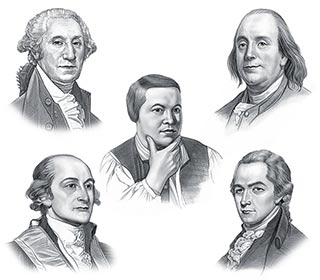Colonial Trades
Trades in Colonial America included The Apothecary, The Architect, The Blacksmith, The Brewer, The Brick Maker, The Carpenter, The Caulker, The Chandler, The Cooper (Barrel Maker), The Gunsmith, The Farmers, The Fur Traders, The Hatter, The Iron Makers, The Joiner, The Milliner, The Overseer, The Publican (Taverns), The Printer, The Sawmill Workers, The Shipbuilders, The Shoemaker (Bootmaker, Cobbler), The Tanner, The Trappers, The Warehouse workers, The Whalers and the Wheelwright. |
